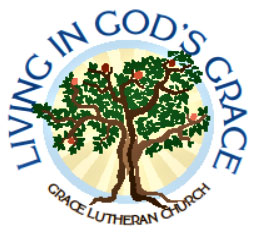We’ve all heard the five words at some point in our lives: “Everything happens for a reason.”
An unexpected setback. A debilitating accident. A diagnosis you never thought you’d hear. An illness that wreaks havoc on your life. A sudden death. Dreams that die, hopes that are crushed, relationships that end. Then, those five words, words seemingly simple, uttered without thinking, yet words that can inflict a lifetime of emotional, psychological and spiritual harm:
“Everything happens for a reason.”
No. Things do not happen for a reason. Things just happen, and suddenly the whole world is changed as you are swamped by an ocean of grief.
We are not talking the cause, but the purpose. Usually causes can be identified. But there is no reason for, or purpose in, all those things that go wrong, big and little, and throw a wrench into the way you had expected your life to unfold.
I remember how this thought swept over me a few years ago as I watched in horror, via live camera, as Trinity Evangelical Lutheran Church in downtown Milwaukee was brutally consumed by a monstrous fire that reduced the stunning wood-graced sanctuary and its grand historic organ to a heap of blackened rubble. A church that was exquisitely built and lovingly cared for over the course of 139 years, destroyed in half an hour. The roof was under repair and a hot tool may have caused the fire. But why? Why this church, of all those in the world that were undergoing roof work? There is no reason to be found. I know an organ is technically not a living thing, but a photo posted later of the blasted-out case with a few sheared-off pipes hanging bizarrely in mid-air made me weep at this specter of death all over again.
Watch what you say in the wake of any crisis or disaster. When someone utters this insensitivity to those who have suffered catastrophic loss, “Everything happens for a reason,” one of two things is taking place.
First and most likely, the speaker does not want to get involved in the messiness of the person’s grief. It’s so much easier to dismiss it with this vague wave of the hand. However, we are not dealing with mere insensitivity. To dismiss a person’s grief in this way amounts to an act of violence against their humanity. It denies them their right to be human.
Or second, the speaker who utters those five words actually believes that God inflicts pain on people for their own good. The idea is that they will grow through their suffering. This is a misreading of the verse from Romans 5, “Suffering produces endurance and endurance produces character….” But God does not want God’s children to suffer. How could a loving God desire that? And as we heard at the contemplative service on September 28, “Love is from God; everyone who loves is born of God and knows God.” God does not engineer bad things in our lives to cause us pain. There is no earthly or heavenly reason for bad things happen.
What we do know, though, is that God in Christ is there in with us in the midst of our pain—Jesus, who knows human suffering so well, shouldering our loss as his own and carrying us in his arms to the cross, that place of death that is also the entryway into new life. This is the meaning of those great words from Paul in Romans 6:3-5, which are part of our liturgy of the Thanksgiving for Baptism:
:Do you not know that all of us who have been baptized into Christ Jesus were baptized into his death? Therefore we have been buried with him by baptism into death, so that, just as Christ was raised from the dead by the glory of the Father, so we too might walk in newness of life. For if we have been united with him in a death like his, we will certainly be united with him in a resurrection like his.”
But first we must go with Jesus to the cross. We must reside there, we must inhabit that place, we must drink in the landscape, we must feel the pain in the depths of our being. This grounds us in the reality of loss, allowing our very human experience of grief to unfold in its own way and on its own timeline. Only then when we have passed through that dark valley can God begin to heal our brokenness with the new life we are promised in Christ, life that is the very foundation of Christian hope.
— In the hope of Christ, Pastor Raabe

